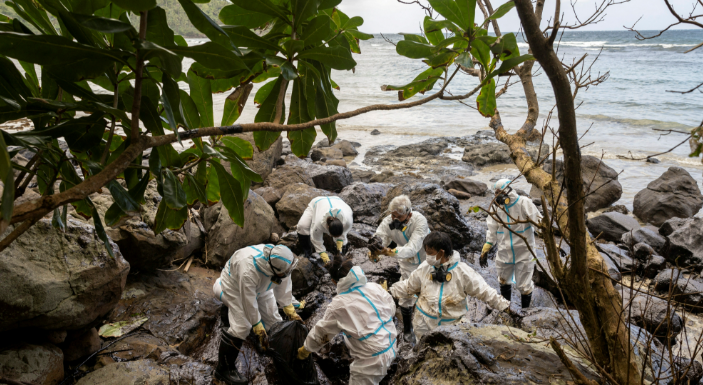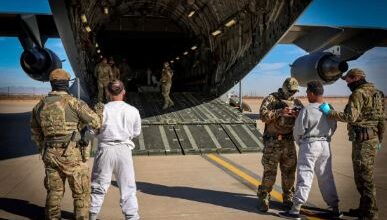Filipino Tanker Spill: Race Against Typhoon to Contain Environmental Disaster

In the Philippines, authorities are in a desperate race against time and nature to contain a significant oil spill from a tanker before an approaching typhoon exacerbates the environmental disaster. The spill has already spread over a wide area, threatening marine life, coastal ecosystems, and local communities dependent on the sea for their livelihood.
The tanker, which was transporting industrial fuel oil, encountered severe weather conditions leading to the spill. Emergency response teams have been deployed to the affected region, but the looming typhoon presents a formidable challenge to containment and cleanup efforts.
Environmental agencies and local authorities are coordinating a multi-faceted response, including the deployment of booms and skimmers to contain and recover the spilled oil. Volunteers and fishermen have joined the effort, using makeshift barriers to protect mangroves, coral reefs, and fisheries from the encroaching oil slick.
“We are facing a critical situation,” said a spokesperson for the Philippine Coast Guard. “The combination of the oil spill and the impending typhoon could result in a catastrophic environmental impact. We are doing everything possible to mitigate the damage.”
The spill’s timing is particularly concerning as the typhoon, expected to make landfall within days, could spread the oil further and make cleanup operations exceedingly difficult. High winds and heavy rains associated with the typhoon could disperse the oil across a much larger area, contaminating beaches, mangroves, and other sensitive habitats.
Local communities are bracing for the dual impact of the spill and the typhoon. Many coastal residents rely on fishing and tourism, industries that are now at risk. The government has promised aid and support, but the immediate focus is on minimizing the environmental damage and preventing further spread of the oil.
Environmental groups have called for more robust measures to prevent such incidents, emphasizing the need for stricter regulations and better preparedness for maritime accidents. The disaster has sparked renewed debate on the safety and environmental policies governing oil transport in the region.
As the typhoon approaches, the urgency of the situation cannot be overstated. The combined efforts of government agencies, local communities, and environmental organizations are critical in this race against time. The outcome of these efforts will determine the extent of the environmental and economic impact on the region.
The Filipino tanker spill underscores the fragility of coastal ecosystems and the dire consequences of industrial accidents, particularly in the face of natural disasters. The coming days will be crucial in determining the success of the containment and cleanup operations, and the resilience of the affected communities.





